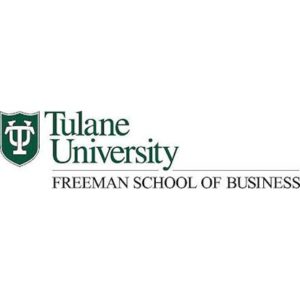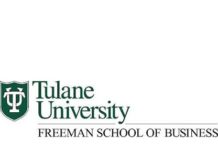 The Tulane University Master in Finance program is consistently asked about and one of the more prominent universities that offer the MSF degree. I have been lucky enough to have students review the program in the past and here is a fresh, up to date perspective on the program. Hope it helps!
The Tulane University Master in Finance program is consistently asked about and one of the more prominent universities that offer the MSF degree. I have been lucky enough to have students review the program in the past and here is a fresh, up to date perspective on the program. Hope it helps!
—————–
1) Why an MSF in general and why Tulane specifically?
I completed my undergraduate studies at a public state college (D3, not highly ranked, etc.), so attending Tulane for graduate school was a no brainer for me. It was important for me to find a reputable, well-ranked university, with a strong finance program, and the option to pursue a corporate finance track (rather than investment banking, like most other schools).
Tulane offered the intensive one-year, non-thesis, specialized Master of Finance, while the majority of other schools in the country only offered an MBA with a Finance concentration. My studies in Finance and International Business already laid a very solid framework for a specialized program like this one. After spending four years taking courses in management, marketing, economics, finance, and accounting, I knew that spending two years re-taking many of those wasn’t a great fit for me. Finance was/is my passion, and the specialized degree program really helped me dig deeper into where I wanted to be.
After growing up in Colorado, it was important to me to find a program that offered a change of scenery (both academically and socially). Some other locations with schools offering an M.Fin program are: Boston, Nashville, Seattle, Chicago, Denver, SF-Bay area, and various locations in Florida.
I chose New Orleans for a multitude of reasons. I knew immediately that spending another year or two in a city with bad weather (read as: snow) would not work for me—so that killed about half the list of schools. The remaining selection didn’t include many private universities, which was a big deal for me. New Orleans was a place I’d only heard great things about, and was certainly a place to experience and enjoy. I wanted a city that would allow me to relax as much as possible, and experience some culture—not just have me running around downtown and attending classes all day.
2) Who would you recommend a Tulane MSF for?
I would recommend the Tulane Master of Finance program to anyone with a strong quantitative background, and a passion to excel in the finance field. With many options in energy finance, investment banking/trading, corporate finance, risk management, real estate, and venture capital, the opportunities are nearly limitless. In line with graduate school, the applicant should not be afraid of hard work, long hours, and extensive analysis/reporting. One course alone during Fall term required us to complete ten HBS cases (this was one class out of seven), along with projects and exams.
The student should not expect professors to hold their hand throughout the program (although they are extremely accessible, and friendly) and should expect to step up to the plate to perform outside research and learning to get up to speed with any material they are not familiar with. One of Tulane’s strongest points is in the energy sector. Many professors are very well recognized in their field (not just energy), and also extremely well connected.
3) Pros and Cons (if any) with the program
Pros:
Location, breadth of study options (lots of electives and tracks), university atmosphere and facilities, length of program (in, out, and into the workforce), name/brand recognition, preparation for professional exams (GARP Exams, CFA, CPA, etc.), preparation for the workforce (case method, heavy workload, varied teaching styles)
Cons:
Cost (my financial aid paperwork got ‘lost’ for about four months, and I had to pay ‘sticker price’ of the degree (~$70k)—no financial aid (grants/scholarships/work study/fellowship), length of program (hard to develop camaraderie in such a short program), curriculum has many required courses and not many elective credits allowed, some courses led by PhD-candidates rather than Professors (led to textbook only learning, versus actually teaching)
4) Anything else you would like to add. You can talk about the Campus, local area, friends you made, recruiting, whatever you want.
The Tulane campus is (in all honesty) very, very nice. A blend of older historic buildings, meshed with new construction, tons of green space, and a logical layout. The graduate business school is new construction, and features a trading room, two floors of break out/study rooms, and a dozen (or more) larger meeting spaces, classrooms, faculty offices, and an event floor at the top. The building is very well connected, has tons of open study space, and is accessible nearly 24/7 with an ID badge. The Reily Sports Center holds the rec center, and sports medicine facilities for athletes and students.
Recent construction also includes Student Center (known as the LBC), which has event rooms (conferences, speakers, student events, job fairs, etc.), tons of study space spread across three floors, a full food court (with local New Orleans cuisine available), bookstore, barber shop, dry cleaners, FedEx Kinkos, and an on campus bar (open late, only for students, and very well priced) for late night study sessions (note: this isn’t The Boot, which is typically for a much younger crowd but is also on campus).
New Orleans is a fantastic city, and it moves just a little slower than everywhere else. Once you get over the fact that the roads may not be that great, and it’s fairly warm out all the time, you’ll be fine. There’s always something going on in New Orleans—that’s the great part. Any excuse for a gathering or party, and there’s bound to be some noise. It’s quite easy to find something to relax you on the off chance you’re not studying – which also poses an interesting distraction during finals week (or any other time).
I keep in professional contact with about 75% of my graduating classmates, but would only say a handful of them could I consider close friends. Tulane (the Freeman School in particular) does a great job of hosting events for students and employers, to spark a career conversation. There are many forums, presentations, guest speakers, and other events throughout the year that promote active engagement in one’s own job search. I loved being able to attend stuff that wasn’t necessarily a study session, or another class.
Here is a link to the Tulane University Master in Finance program




